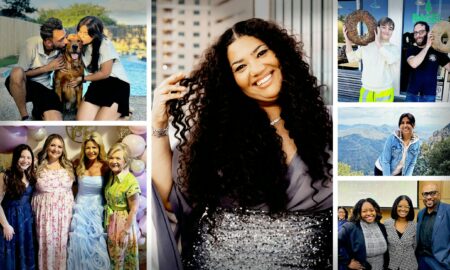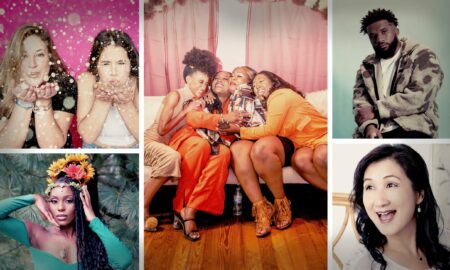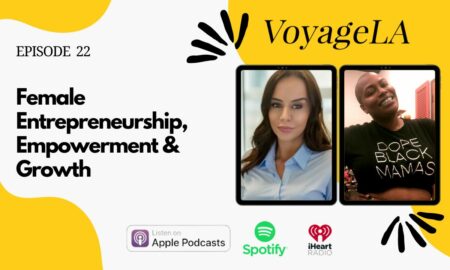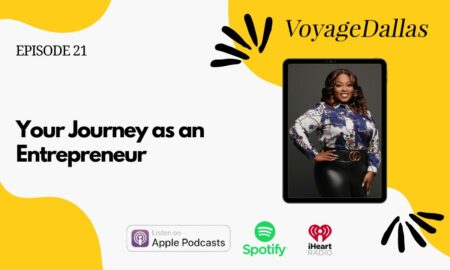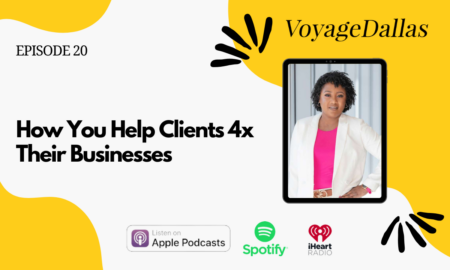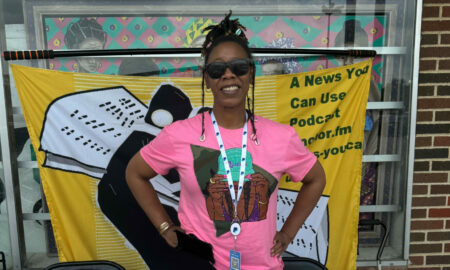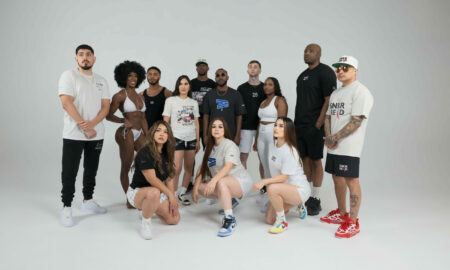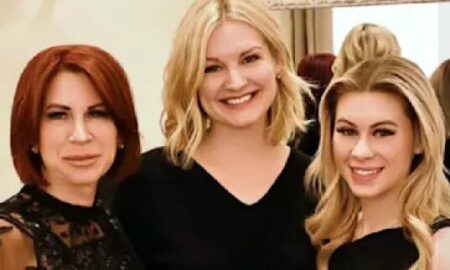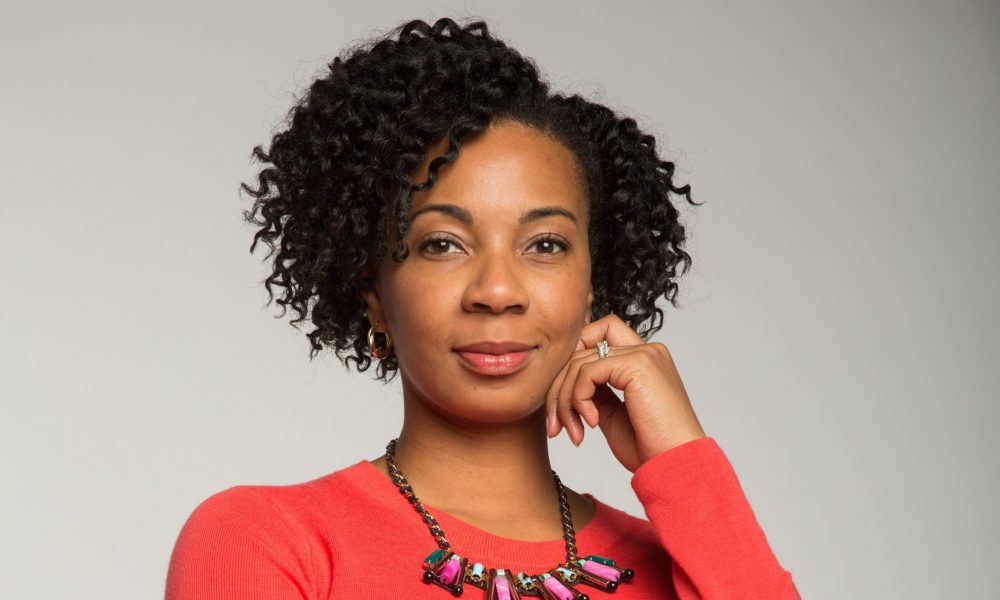

Today we’d like to introduce you to Kimber Shelton.
Kimber, please share your story with us. How did you get to where you are today?
I grew up in Upstate New York and was raised in a family that never took vacations, but always went “home”. Home for my family was Beckley, WV, which is where my grandmothers lived, my parents were raised, and I was born. Spending summers in West Virginia was fun. I built clubhouses with my cousins, swung from grapevines branches, and picked wild blackberries. Time spent in West Virginia was also painful. My grandmother was poor her whole life. Her poverty came with all the usual suspects of abuse, low educational attainment, underemployment, family history of addiction, racism, and sexism.
But that was not my grandmother’s only story. My grandmother was also defined by her beauty, strength, and perseverance. She raised children and grandchildren, was a cancer survivor, and always had an open heart. So, you can imagine my anger and disappointment when others, particularly those in positions of power, treated my grandmother as if she was inferior and marginal. Worst yet, when others acted as if she did not exist. When confronted with my grandmother’s invisibility, I found myself standing up for my grandmother at doctor’s appointments, grocery stores, and with utility companies. At 10 years old, I wasn’t “woke”, but I knew right from wrong, and I felt empowered enough to speak up.
Personal exposure to biased treatment sparked my interest in privilege and oppression. Professional experiences fuel my capacity to engage in social justice and cultural competence work. I have had the opportunity to work with women residing in a homeless shelter, lead groups for LGBTQ individuals, and train universities, business and organizations on cultural competence issues. Prior to moving to Dallas, I worked as a Staff Psychologist and Coordinator of Diversity Programming at The Georgia Institute of Technology Counseling Center, where I created diversity initiatives within the counseling center and Institute-at-large.
When I first moved to Dallas, I volunteered at the LGBT Resource Center, helping to register individuals with HIV for free health and dental services. Within professional organizations, my diversity work has included serving on the American Psychological Association (APA) Committee on Sexual Orientation and Gender Diversity, serving as the former co-chair of the Texas Psychological Association Diversity Division, and I am an APA Diversity Fellowship fellow. Twice I have advocated for mental health parity on Capitol Hill.
Fasting-forward to my career today, I focus my practice and scholarly work on issues impacting marginalized communities. In my own small way, I try to work within my sphere of influence to bring visibility and voice to those who have been overlooked. Individuals like my grandmother would NEVER come to therapy. Rightly so, people living in property, people of color, and sexual orientation and gender identity minorities have been wronged time and time again by the healthcare system. Knowing this, I am focused on destigmatizing mental health services and creating a welcoming environment for communities that tend to underutilize counseling services.
Great, so let’s dig a little deeper into the story – has it been an easy path overall and if not, what were the challenges you’ve had to overcome?
There is little that is “smooth” about higher education or doing diversity and relationship work! Fortunately, I have never felt alone in my journey. In my life, I have been privileged to have had individuals see potential in me before I saw it in myself, mentor and motivate me towards success, and open doors that were previously closed.
The majority of my professional experiences have centered around diversity and cultural competence. If you have ever facilitated a diversity training, attended a diversity workshop, or had a conversation with one another person about a diversity issue, then you know diversity-work is hard work. Emotions and defenses are activated around topics of gender, sexual orientation, ethnicity, religion and equality in ways that no other topics can trigger.
Furthermore, the need for diversity trainings often arises in the aftermath of a conflict, and people can feel shutdown before the conversations even begin. When I struggle with the frustrations of diversity-work, I am reminded of remarks from Dr. Janet Helms, a Diversity Scholar, and Psychologist, who shared that, “It is always hard to talk about diversity, but we do it anyways.” I recognize that much of the challenge in difficult dialogues arises from fear – fear of being wrong or saying the wrong thing, fear of being called out for an “ism”, fear of potentially changing. In honoring the fear that we all experience when we are challenged to grow, I stay motivated in empowering individuals to effect change in themselves and their environment.
My greatest professional struggle has been developing my business. I went to school to be a psychologist; in all my training, I was never taught how to run a business. Tax-ID numbers, procedure codes, and certifications of occupancy never made it into my coursework. As such, transitioning from a salaried-position to a full-time private practice was a real struggle. I try not to think about all the money I lost in my first two years of practice. Many a day, I questioned if being an entrepreneur was right for me and wondered if I had made a terrible mistake thinking I could run my own business. Seriously, I have a Ph.D. and was living paycheck-to-paycheck! Thank goodness, I have and continue to overcome the hurdles associated with being a business owner. I appreciate the process that I went through, but I do not want other entrepreneurs to face the same struggles, which is why I currently offer business coaching to emerging entrepreneurs.
KLS Counseling & Consulting Services – what should we know? What do you guys do best? What sets you apart from the competition?
I am a Licensed Psychologist, Author, Diversity Consultant, and Relationship Expert. I own KLS Counseling & Consulting Services in Duncanville, TX. In my counseling practice, I work with individuals, couples, and groups experiencing anxiety, depression, trauma, transition issues, identity concerns and relationship problems. In addition to my general counseling services, I am proud to be one of the few psychologists who specialize in ethnic minority issues and LGBTQ concerns in the South Dallas area.
I provide mental wellness and diversity-related trainings and workshops for groups, businesses, and organizations. As a local, national and international speaker, I assist organizations in skill-based trainings (Conflict Resolution, Stress-Management, Assertive Communication) and diversity-affirming practices (Intercultural Communication, LGBTQ Sensitivity, Microaggressions, Cultural Competence). I also love assisting entrepreneurs and mental health professionals in turning their business dreams into realities. I offer a range of services to business professionals looking to establish successful brands.
A scientist-practitioner background sets KLS apart from other mental health services. Research and evidence-based practices are integrated in all counseling, consulting, and training services. My style of therapy and training is transparent, interactive and fun. If it is not possible to directly work with me, with over 20 publications, numerous mentions on major media sites, and as an Expert Diversity Contributor to Goodtherapy.org, individuals and community agencies can still gain valuable information and resources from KLS.
What moment in your career do you look back most fondly on?
It is uncommon for a professional peer-reviewed manuscript to be published in more than one professional journal. When a manuscript is republished in another journal it is because the information is deemed important enough to share on a wider scale or is considered a seminal work.
I am proud that my publication, Sexual Orientation Microaggressions: The Experience of lesbian, Gay, Bisexual and Queer Psychotherapy Clients, has been published in both The Journal of Counseling Psychology and Psychology of Sexual Orientation and Gender Diversity.
In terms of being in Dallas, one of my favorite experiences was playing pick up volleyball with Deion Sanders! Our team won!
Pricing:
- Individual, couples and group counseling – $150-100 per session. I also accept a number of insurances.
- Business Coaching – $150-400
Contact Info:
- Address: 214 S. Main St., Ste. 214, Duncanville, TX 75116
- Website: www.kls-counseling.com
- Phone: 469-407-0381
- Email: kimbersheltonphd@yahoo.com
- Facebook: @KLSCounseling









Getting in touch: VoyageDallas is built on recommendations from the community; it’s how we uncover hidden gems, so if you know someone who deserves recognition please let us know here.

